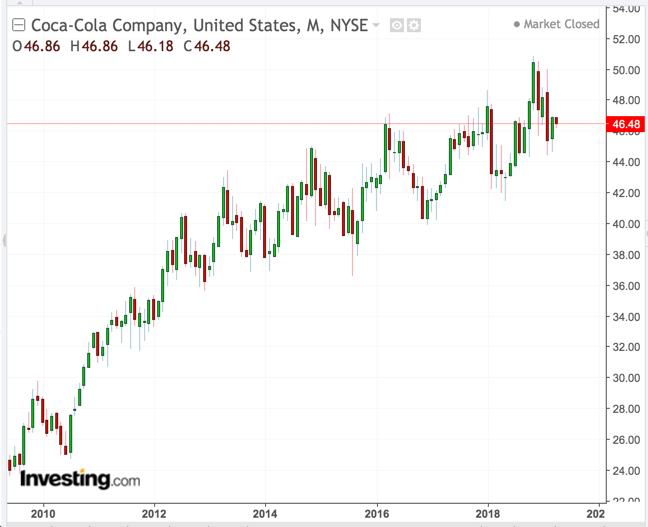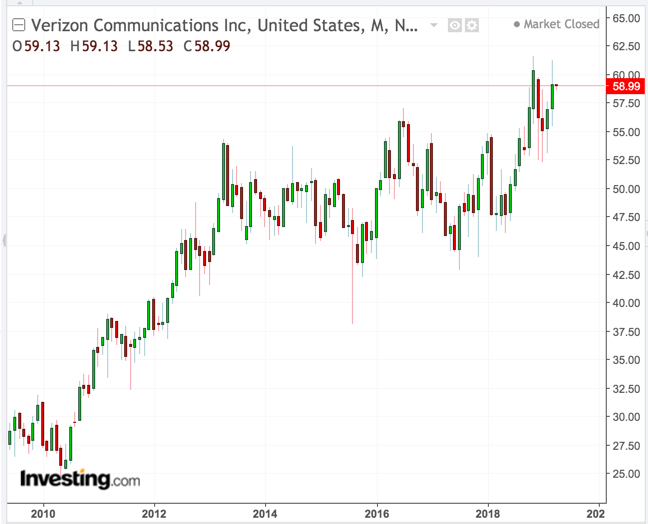For many investors, it doesn’t make sense to keep track of daily market gyrations. Their investment style is to buy quality stocks and then hold on to them forever. The world’s most successful value investor, Warren Buffett, knows this art very well. His favourite holding period for stocks he likes is, very literally, “forever.”
The benefits of this strategy have been demonstrated by a host of studies that found that stocks that pay regular dividends and grow them over time have performed better than cyclical growth stocks. According to a Morgan Stanley report citing Factset, over the last 90 or so years, dividends have accounted for more than 40% of the market’s total return. From 1991 through 2015, non-dividend paying stocks earned just 4.18% return per year, while dividend paying stocks significantly outperformed with a 9.7% average annual return.
Forever-stocks pay dividends no matter what’s happening with the general economy. Their payouts survive peaks and troughs, wars, depressions, and asset bubbles. Below are two examples of dividend-paying stocks that could help you understand the concept better:
1- Coca Cola
Atlanta-based food and beverage giant Coca-Cola (NYSE:NYSE:KO), is an ideal forever-asset to hold. While many companies regularly reward their investors through payouts, you'll rarely find a company that has been sending dividend cheques for more than a century.
This impressive track-record doesn’t hide the fact that selling food and beverages is a tough business that requires constant innovation and cut-throat competition. Coke, in its 127-year of history, has proved that its brand has immense power to cope with these pressures. At a time when health-conscious consumers are shifting away from sugary drinks, the company is expanding its healthy offerings. As part of its push to grow beyond its namesake brand and become a “total beverage company,” Coke is acquiring startup beverage companies to resonate better with health-conscious clients and find new areas of growth. Its recent investments include Honest Tea, Fairlife dairy and Suja Life LLC.
Trading at $46.48 at yesterday's close, Coke’s stock is yielding 3.41% annually. That return might not look too exciting, but the company has a long track record of hiking its payout—for 56 consecutive years now. Its $0.4 a share quarterly dividend has more than doubled over the past five years.

2- Verizon Communications (NYSE:VZ)
Telecom utilities depict many qualities of a forever-asset. No matter in which direction the economy heads, internet and wireless connections will likely to be the last items consumers will cut from their must-have lists. This predictability makes them valuable forever stocks to own in your retirement portfolio.
Verizon Communications (NYSE:VZ), one of the biggest telecom providers in the U.S., is an excellent example of this. The company has been paying steadily, increasing dividends for 30 years. Its $0.6025 per share quarterly dividend has grown more than 50% since Verizon stock first started trading in 2000 after the merger between Bell Atlantic and GTE. Its stock, trading at $58.99, is offering a solid 4.09% annual yield, which doesn’t look bad if you compare it with the average yield of around 2% offered by S&P 500 companies.

At a time when the wireless industry is maturing and growth is hard to come by, technological breakthroughs are opening up new areas of growth. The next big thing for Verizon is the roll-out of the fifth-generation, or 5G network.
The 5G wireless networks are crucial for the success of some futuristic applications, such as driverless cars, smart homes and remote surgical procedures. And there is no doubt, Verizon is ahead in this race. In October, Verizon got a head start in introducing residential broadband and TV services using 5G technology in four cities that are serving as a testing ground for the company.
Bottom Line
It’s always a good time to buy forever-stocks such as Coke and Verizon, and keep them in your income portfolio. Companies with durable competitive advantages, powerful brands and entrenched market positions continue to reward their shareholders through dividends. They are in a better position to ride through any economic downturns and outperform over the long run.
